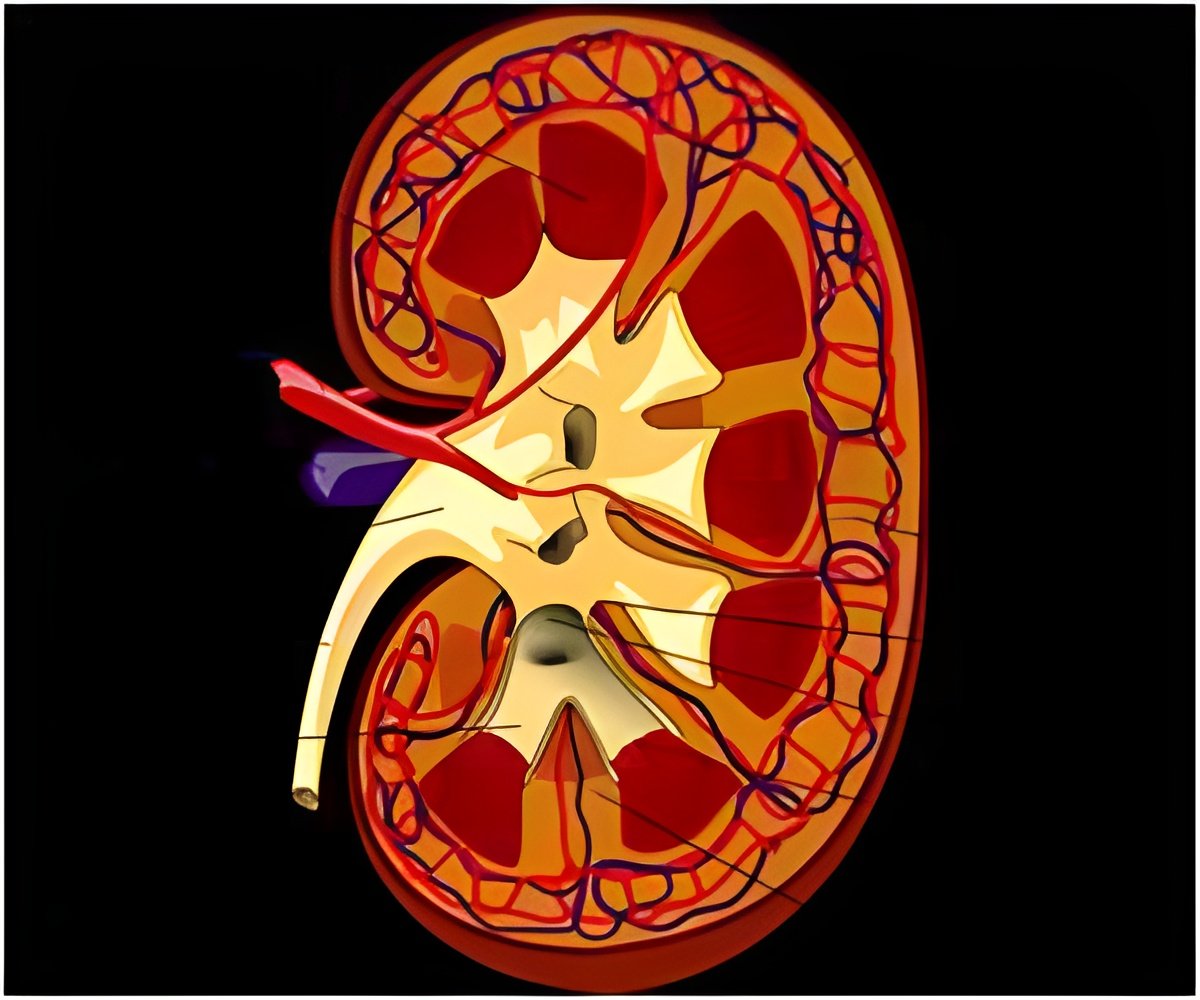African-Americans having a gene variant and chronic kidney disease are at double the risk of kidney failure

The impact of the gene variant – known as APOL1 – on risk for and rate of CKD progression was consistent in both studies, regardless of whether patients maintained good blood pressure control or had diabetes. High blood pressure and diabetes are major risk factors for CKD and its progression to kidney failure.
"We now know that the APOL1 gene variant is independently associated with a more aggressive course of disease. This finding tells us that different treatment strategies should be studied, so that we may one day delay or prevent kidney failure among people with this genetic risk," said Paul Kimmel, M.D., director of the Kidney Translational Genetics Program at the NIH's National Institute of Diabetes and Digestive and Kidney Diseases (NIDDK).
"Now that the importance of the gene is known, clinicians could potentially genotype – or map the genes – of African-Americans with CKD to assess their risk for disease progression," said Afshin Parsa, M.D., a nephrologist at the University of Maryland School of Medicine in Baltimore and a CRIC Study investigator. "This discovery provides direct evidence that African-Americans with established CKD and the APOL1 risk gene variant experience a faster decline in kidney function compared to their white counterparts, irrespective in most cases of what caused their kidney disease."
Parsa and Linda Kao, Ph.D., a geneticist from the Johns Hopkins Bloomberg School of Public Health in Baltimore and the AASK Study Group, co-led the research.
The discovery builds on landmark 2008 research by NIH kidney specialist Dr. Jeffrey Kopp and others, led by Dr. Martin Pollak at The Laboratory of Inherited Kidney Disease at Beth Israel Deaconess Medical Center and Harvard Medical School in Boston, which found the APOL1 gene variant to be a risk factor for kidney disease that wasn't associated with diabetes.
Advertisement
The CRIC study is one of the largest and longest ongoing studies of CKD epidemiology in the United States (ClinicalTrials.gov number: NCT00304148). It is supported under NIH grants U01DK060990, U01 DK60980, U01 DK60902, U01 DK61021, U01 DK61022, U01 DK60963, U01 DK61028 and U01 DK60984. CRIC recently embarked on an expansion to add more than 1,500 patients over the next five years, increasing the study's total size to approximately 5,500.
Source-Eurekalert














